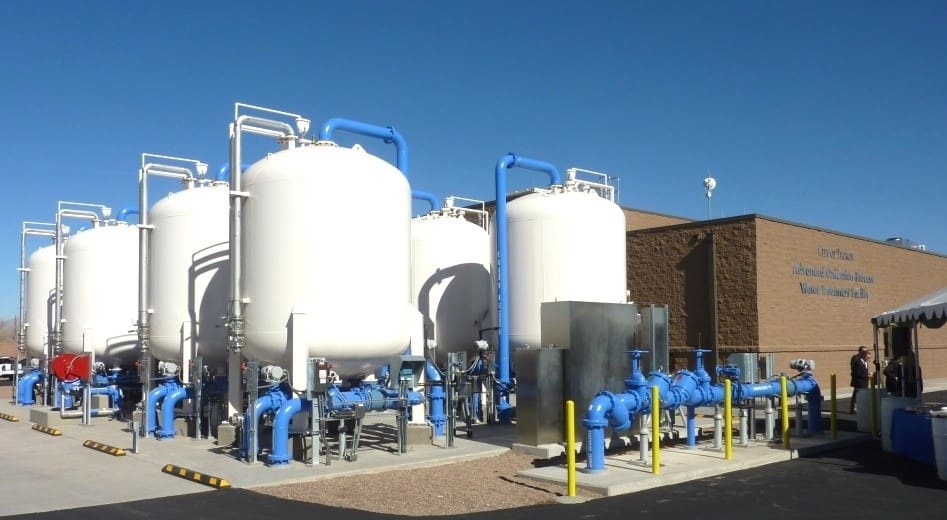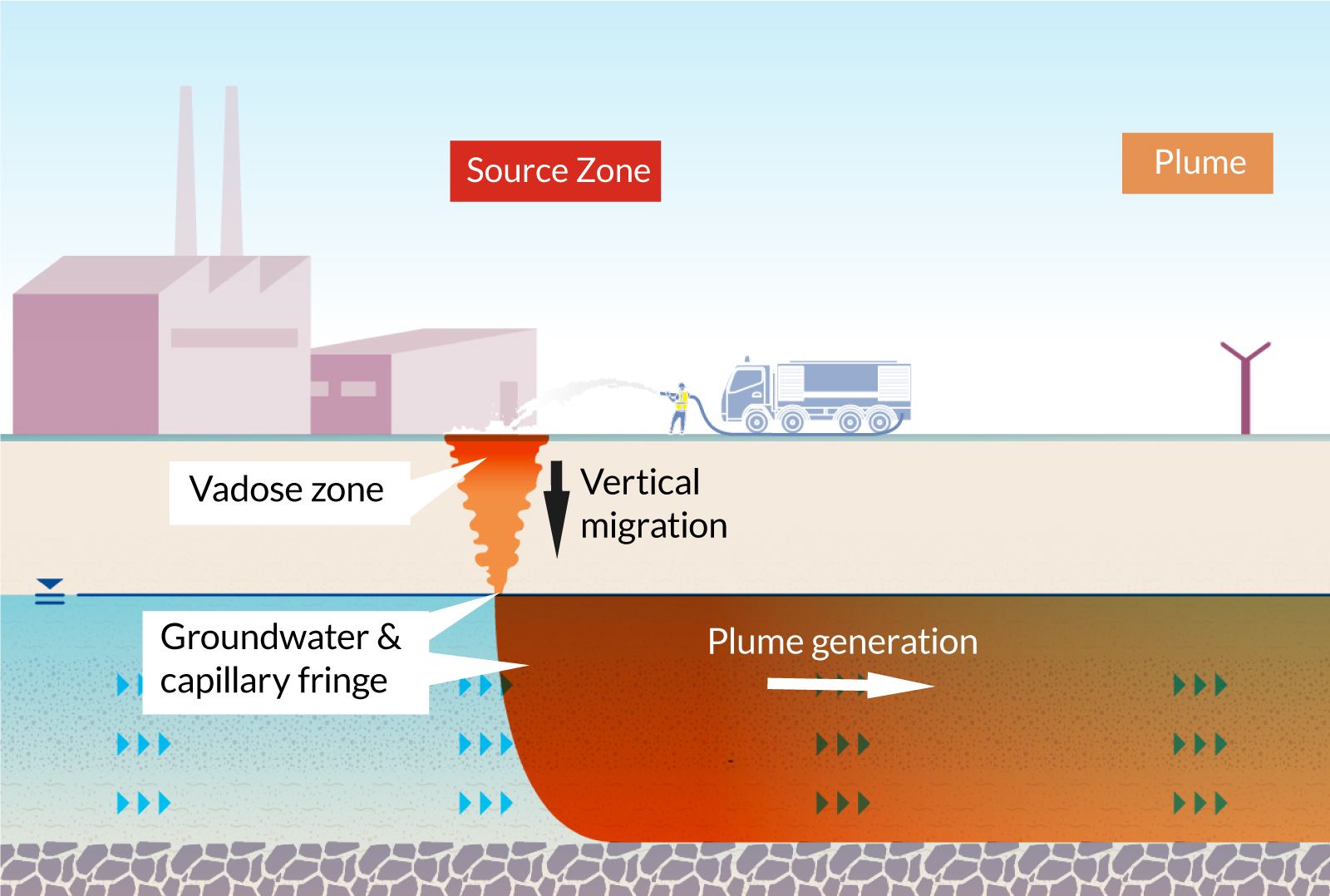The Importance of PFAS Treatment in Restoring Polluted Water
The Importance of PFAS Treatment in Restoring Polluted Water
Blog Article
How PFAS Therapy Guarantees Tidy and Lasting Water
The existence of PFAS, typically known as "for life chemicals," positions substantial difficulties to water quality and public wellness. Advanced treatment modern technologies, including activated carbon adsorption and membrane layer filtering, have actually emerged as reliable options to reduce these impurities. By utilizing these techniques, neighborhoods can not only attain cleaner water but also foster lasting techniques that protect ecosystems. However, the ramifications of these therapies extend past prompt health benefits; they elevate crucial inquiries about long-term water administration strategies that should be dealt with to make certain a durable future. What does this mean for our approach to water sustainability?

Understanding PFAS Contamination
PFAS, or per- and polyfluoroalkyl compounds, have actually become a considerable ecological problem due to their extensive occurrence and determination in the setting. These synthetic chemicals have been utilized in different commercial applications and customer items, consisting of non-stick cooking equipment, water-proof clothing, and food product packaging, as a result of their special homes such as water and oil resistance.
The contamination of soil and water sources by PFAS occurs primarily through industrial discharges, firefighting foam usage, and seeping from land fills. pfas management. As soon as launched, these materials are immune to destruction, bring about their buildup in the setting. This perseverance elevates critical concerns, as PFAS can take a trip cross countries via groundwater and surface area water systems, affecting drinking water supplies and communities

Wellness Risks of PFAS
The determination of PFAS in the atmosphere increases considerable health worries for individuals subjected to these substances. Called "permanently chemicals," PFAS do not break down easily and can collect in bodies in time. Study has linked PFAS direct exposure to numerous adverse health results, consisting of immune system disorder, liver damages, and increased danger of specific cancers cells - pfas management. Notably, research studies have shown elevated cholesterol degrees and potential influence on reproductive and developing wellness, particularly in expecting people and babies.
The ubiquity of PFAS in consumer products, such as non-stick cooking equipment, water-repellent fabrics, and food packaging, further magnifies the risk of direct exposure. Drinking water polluted with PFAS is a substantial worry, as these chemicals can leach right into groundwater sources. Prone populaces, consisting of children and those living near industrial sites, might encounter increased dangers due to their establishing systems and potential for greater direct exposure levels.
As awareness of these health risks remains to grow, regulative firms are beginning to develop guidelines for PFAS levels in alcohol consumption water. Public health and wellness campaigns are important to mitigate direct exposure and protect areas from the long-lasting results of these dangerous materials.

Ingenious Treatment Technologies
Exactly how can we successfully tackle the challenges posed by PFAS contamination in water sources? Innovative therapy modern technologies are emerging as critical remedies in the pursuit for tidy water. These techniques concentrate on the removal or devastation of per- and polyfluoroalkyl materials (PFAS), which are notorious for their persistence in like this the environment.
One encouraging strategy is adsorption making use of innovative materials, such as turned on carbon and ion exchange resins. These products have revealed efficacy in recording PFAS particles from water. Another significant innovation is membrane filtration, which utilizes nanofiltration and turn around osmosis to separate pollutants at the molecular level, hence offering an obstacle against PFAS.
Furthermore, progressed oxidation procedures (AOPs) use solid oxidants to break down PFAS compounds right into safe byproducts. This method is especially reliable for treating highly polluted water resources. Bioremediation strategies, using specific bacteria, are additionally being explored to deteriorate PFAS.
As study continues, hybrid systems that integrate multiple modern technologies might provide boosted efficiency, dealing with the complexities of PFAS contamination. The advancement and execution of these innovative treatment innovations are important steps toward making sure the safety and sustainability of our water resources.
Benefits of Reliable PFAS Therapy
Efficiently treating PFAS contamination in water sources significantly enhances public health and environmental safety. PFAS, click here for more info often described as "permanently chemicals," are resistant to deterioration and can gather in the body, causing severe health and wellness dangers such as cancer, liver damages, and body immune system disorder. By applying reliable therapy techniques, neighborhoods can decrease exposure to these dangerous materials, ultimately improving the health end results of their populaces.
Additionally, effective PFAS treatment contributes to the preservation of local ecosystems. Contaminated water can negatively affect marine life and disrupt the delicate equilibrium of regional habitats. By making certain tidy water, therapy procedures protect biodiversity and keep eco-friendly stability.
Furthermore, reliable PFAS remediation can cultivate public confidence in water high quality. When areas are guaranteed that their alcohol consumption water is without harmful pollutants, it advertises a sense of security and well-being. This depend on is essential for community involvement and support for continuous water monitoring initiatives.
Future of Water Sustainability
In the middle of growing problems about water high quality and deficiency, the future of water sustainability depends upon innovative strategies and collaborative initiatives. As neighborhoods encounter the looming threats of pollutants like PFAS, the growth of advanced therapy technologies is important. These modern technologies not just focus on the elimination of hazardous materials yet likewise advertise the reuse and recycling of water, thus reducing general need.
Furthermore, effective water governance plays a vital duty in making certain sustainable methods. Policymakers should incorporate clinical research with regulative frameworks to develop clear guidelines for water use and treatment. Stakeholder involvement, including regional communities and sectors, article source fosters a feeling of shared obligation and urges lasting methods throughout various industries.
Financial investment in framework is likewise crucial; updating aging systems to include contemporary filtering and filtration techniques can considerably enhance water top quality. Embracing green innovations, such as natural purification systems, can supply environmentally friendly services.
Inevitably, the future of water sustainability hinges on a holistic strategy that incorporates innovation, policy, and area involvement. By prioritizing these components, we can protect our water sources for generations ahead, guaranteeing tidy and lasting water for all.
Conclusion
In conclusion, the efficient treatment of PFAS is necessary for making certain tidy and lasting water. Ultimately, robust PFAS treatment strategies contribute to long-term resilience in water administration, promoting public count on in water high quality and promoting sustainable methods.
Report this page